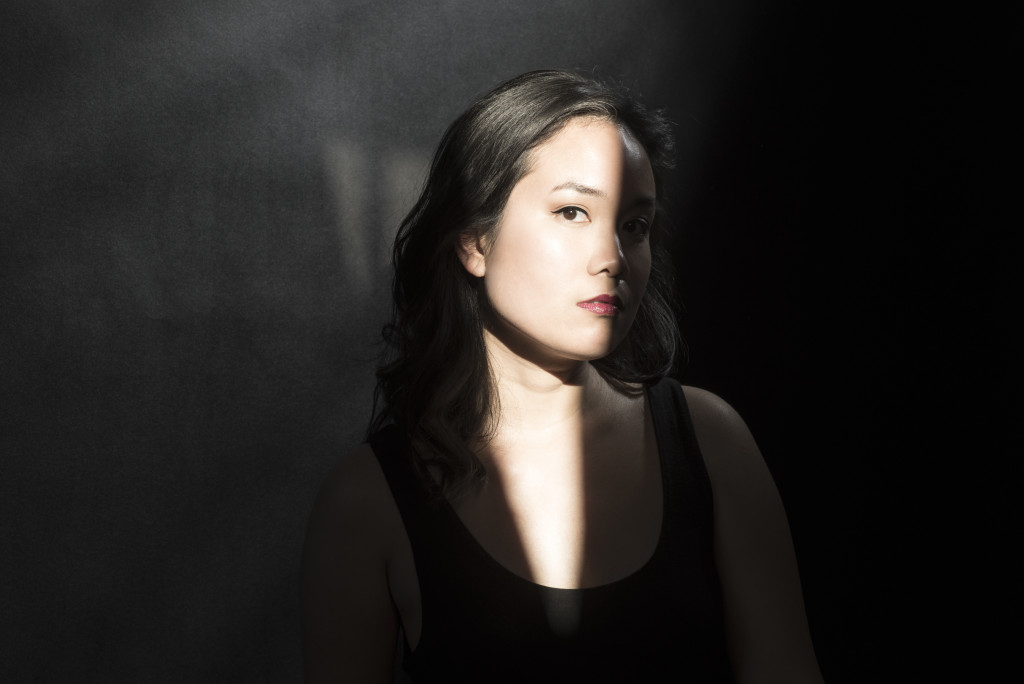
Amid a summer heatwave in Toronto, Darlene Cuevas hammered out her debut record, Heart Strung Out, released under the stage name Darling Cora. On the nine-track album, the Canadian singer-songwriter tackles what it means to love and be loved as a young woman navigating both the victory and tragedy of the heart. The album is releasing August 19th but Elmore has the exclusive full album stream below.
Setting the style for the rest of Heart Strung Out is opening track “Sugar,” as hypnotic as it is lush and full of dark, swirling colors. Later, “Two Lovers” follows its lead with a dull percussive thump trailing Darling Cora’s deep, elusive voice. On “Charade,” her 60s female-folk influences are accentuated by breathy vocal play and a more playful rhythm than the others, while the last track “Empire Of Yourself” combines all the previous elements of the record for a sleepy, spellbinding conclusion full of instrumental solos, powerhouse punches, and neverending melody.
Experimenting with otherworldly sounds concocted from a percussion-based composition and vocal fluctuations, Darling Cora feeds us the spooky, raw inner workings of her mind. Through poetic songwriting and an eerie type of creativity, she releases Heart Strung Out as a confession (and a guidebook) to women everywhere.
Read our exclusive interview with Darlene here and stream the full album below a week before its release:
Elmore Magazine: What is the music scene like in Toronto and how has it influenced your own work?
Darlene Cuevas of Darling Cora: The Toronto music scene is a bustling melting pot where Canadian musicians from all regions, styles, and backgrounds flock to in order to “make things happen”, much like how it is going to New York City or Nashville. As such, there is often pressure to stand out amongst the white noise created by such an abundance of talent, and I have seen this lead to both musicians making each other better along the way, and to others succumbing to pressure and petty jealousy. I feel that it is a rite of passage to encounter both of these at some point along the way, and it has shaped my music in that I have learned to trust my own musical voice and judgment as it stands, apart from those who never had any good intentions to begin with.
EM: What was the production process like for your debut album, Heart Strung Out?
DC: Production got delayed for a few months, and to be honest, I was not entirely sure when the album would get started until a few weeks before. It was a bit of a mad dash scramble to get things done once we did get around to it, and definitely a test of each other’s endurance and patience. Making the record was seriously intense – I had never felt under such pressure to deliver my best stuff in such a short amount of time, basically over three days during a bit of a Toronto May heatwave, which was hard because of a medical condition which makes it hard for me to control my body temperature. That, along with my nerves, almost pushed me over the edge. My producer Jaron Freeman-Fox did an exceptional job shaping the direction of the recordings, and I adore his additional string arrangements. I give my hat’s off to his dedication and expertise. I came in thinking I was more prepared for the process than I really was, but in the process of having to realize that, I learned SO much about recording and about what I need to work on in order to grow as a musician and writer for the future.
EM: Which is your favorite song on the record and why?
DC: I absolutely love how the lead single “Yearn” shaped out, but my favorite would have to be “The Story” because of a little happy accident behind the crackling sound on the track. Literally the day before I had to lay down my guitar part for the song, I tripped and fell at a gig, along with my precious Gibson semi-hollow. I was able to continue that show without a hitch, but for some reason, there emerged a very noticeable crackling sound whenever I played my guitar hooked up with all the audio gear and equipment at the studio – and especially for this song. I was horrified and embarrassed that I somehow let this weird sonic quirk happen – but I credit my producer’s ingenuity in shaping the additional strings and banjo parts to make that crackle sound surprisingly welcome, and I have since learned to love that little “imperfection”.
EM: Where do you get your songwriting inspiration from?
DC: I wish I could pinpoint exactly how and when I come up with my songs, but to be frank, there is no definitive rhyme or reason to plan for when inspiration will strike. I have just been fortunate enough to realize when to keep things rolling once the seed or spark of a new song emerges. Part of it is influenced by what I go through in my personal life, and part of it is just an inexplicable urge to create something I consider beautiful.
EM: Who are your biggest musical influences?
DC: An artist usually likes to keep their “bag of influences” a bit of a secret, and I subscribe to that view, but it might be pretty obvious to listeners that that I am influenced by Jeff Buckley. But I say that not as a throwaway influence to try to come off as more legit or better than I really am; I say that because I share Buckley’s affinity for absolute vocal commitment, emotional intensity, and veracity. I aspire for that ‘holy grail of sorts’ in my own work. I am also very much influenced by the songwriting of pre-Kid A Radiohead, Neil Young, Joni Mitchell, and Martha Wainwright.
~Savannah Davanzo


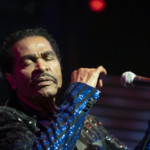
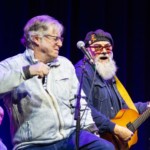
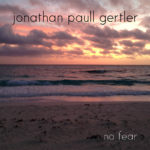
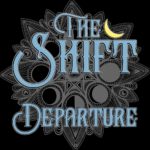

Be the first to comment!